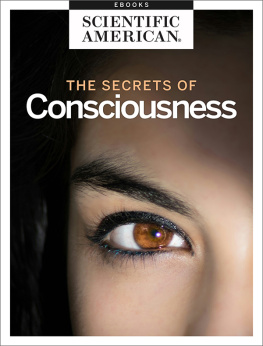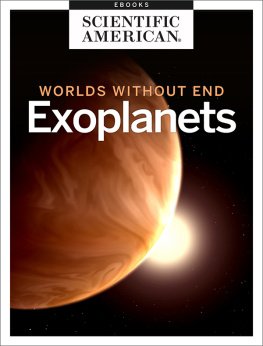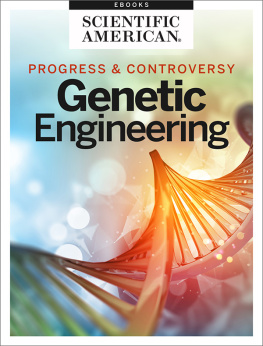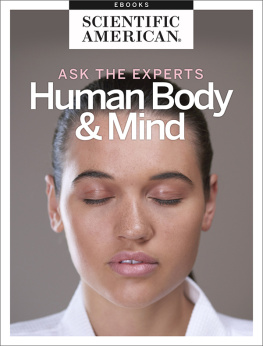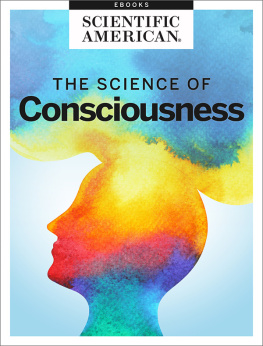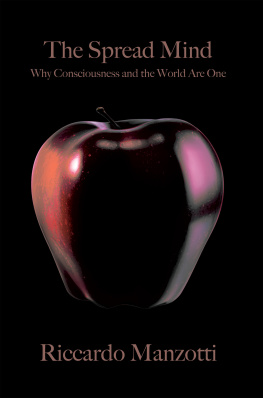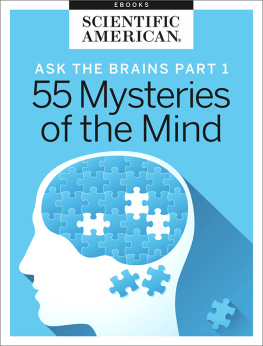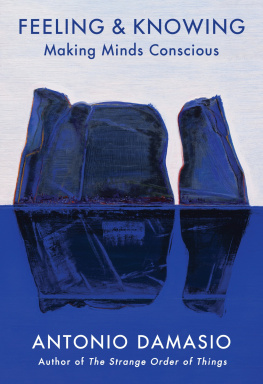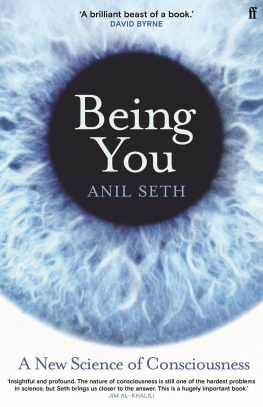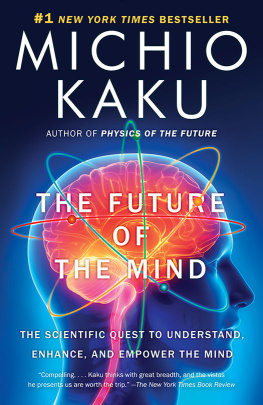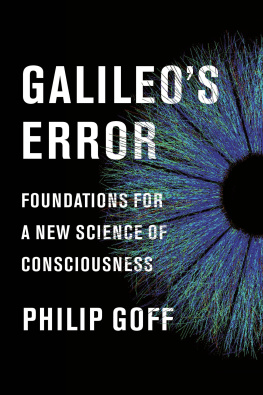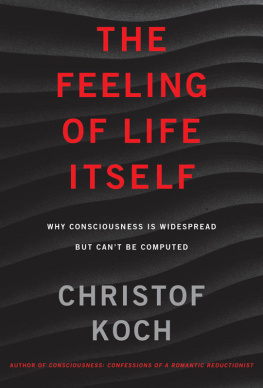The Secrets of Consciousness
From the Editors of Scientific American
Cover Image: Ashutosh Jadhav/EyeEm/Getty Images
Letters to the Editor
Scientific American
One New York Plaza
Suite 4500
New York, NY 10004-1562
or editors@sciam.com
Copyright 2017 Scientific American, a division of Nature America, Inc.
Scientific American is a registered trademark of Nature America, Inc.
All rights reserved.
Published by Scientific American
www.scientificamerican.com
ISBN: 978-1-466842595


The Secrets of Consciousness
From the Editors of Scientific American
Table of Contents
Introduction
by Jeanene Swanson
Section 1
1.1
by Christof Koch
1.2
by Christof Koch
1.3
by Gerhard Roth
1.4
by Uwe Herwig
1.5
by Christof Koch
Section 2
2.1
by Antonio R. Damasio
2.2
by David J. Chalmers
2.3
by Christof Koch and Susan Greenfield
2.4
by Christof Koch
Section 3
3.1
by Christof Koch
3.2
by Steven Laureys
3.3
by Daniel Bor
Section 4
4.1
by Stephen Dougherty
4.2
by Scott O. Lilienfeld and Hal Arkowitz
4.3
by Ursula Voss
4.4
by Francesca Siclari, Giulio Tononi and Claudio Bassetti
4.5
by Jesse Bering
Section 5
5.1
by David Biello
5.2
by Christof Koch
5.3
by Gary Stix
5.4
by Roland R. Griffiths and Charles S. Grob
Section 6
6.1
by Nadia Webb
6.2
by Jennifer Ouellette
6.3
by David Biello
6.4
by Amishi P. Jha
Searching for the Secrets of Consciousness
Consciousness is an enigmatic beast. Its more than mere awarenessits how we experience the world, how our subjective experience relates to the objective universe around us. And therein lies the rub, in that tiny little word how. Neuroscientists continue their stepwise progress in figuring out just what separates so-called mind from brain. How do the neural and chemical workings of our brains create our minds, our total experience of the world, our thoughts and feelings, and that sense of self that distinguishes the individual from everyone else?
In this eBook, The Secrets of Consciousness , we explore these very questions, starting with a Section 1, The Nature of Consciousness. Scientific American Advisory Board member and prominent neuroscientist known for his research on the neural bases of consciousness, Christof Koch offers several pieces on just what is consciousness. Using techniques such as functional brain imaging to record activity, one article looks at how unconscious mechanisms affect thought; another, at the consciousness of bees; and a third, a feature on how our perceptions create a movie in our heads.
Section 2, From Brain to Mind, delves into theories on precisely how consciousness happens. How is neural activity translated or interpreted to become a mind that feels, records, remembers, and all the other things that make our lives ours? An indepth look at the hard problem, as author David J. Chalmers puts it, requires an entirely new theory that places consciousness itself as a fundamental component akin to the forces of physics. Two leading neuroscientists go head-to-head in a story titled Debate: How Does Consciousness Happen? in which each expresses a different take on the neurons and circuits involved in creating conscious awareness.
Of course, when we talk about measuring consciousness, no device exists that can test whether an unresponsive person is truly conscious. Section 3, Measuring Consciousness, discusses what tools we do have and what they can tell us. One story, Eyes Open, Brain Shut, addresses the heartbreaking scenario above of measuring consciousness in people who are unresponsive or behaving reflexivelysuch as a coma or vegetative statewhile another, The Mechanics of Mind Reading, takes us on a wild ride into the use of brain scans to read thoughts.
Altered States of Reality is the fascinating focus of Section 4, including how consciousness is affected when we go under anesthesia, when weve been hypnotized, when were dreaming or sleepwalking, and...when were dead. Jesse Berings article, titled The End, explores what he calls an inevitable and troublesome by-product of self-consciousnessbelieving that the mind lives on after the brain dies.
In a category all their own, psychoactive drugs are discussed in Section 5, which rounds up a handful of interesting stories on the re-birth of using previously blacklisted hallucinogens as healing drugs. Chemicals such as LSD, psilocybin and others were outlawed in the 1950s and 1960s, but have since seen resurgence in clinical testing due to their promise as healing medications for cancer patients, addicts and people with other psychiatric illnesses.
Finally, Section 6 explores The Enigma of Spirituality. David Biello takes on the search for God in the Brain in his article highlighting studies searching for specific neurological centers of spirituality; while Amishi P. Jha writes about Being in the Now, or how mindfulness meditation can help everyone from addicts to former soldiers suffering from PTSD.
Its been said before, but the brain is the final frontier. Just how that brain creates not only awareness, but also integrates that awareness into creating experiences, memories, and an enduring sense of selfwell, it might take overhauling not only how we study ourselves, but how we define our reality in the process of looking.
Jeanene Swanson
Book Editor
SECTION 1
The Nature of Consciousness
How Unconscious Mechanisms Affect Thought
by Christof Koch
What is consciousness? What is this ineffable, subjective stuffthis thing,substance, process, energy, soul, whateverthat you experience as the sounds andsights of life, as pain or as pleasure, as anger or as the nagging feeling at the back ofyour head that maybe youre not meant for this job after all. The question of thenature of consciousness is at the heart of the ancient mind-body problem. Howdoes subjective consciousness relate to the objective universe, to matter andenergy?
Consciousness is the only way we experience the world. Without it, you would belike a sleepwalker in a deep, dreamless sleep, acting in the world, speaking, havingbabies, but without feeling anything. You would feel nothing, nada , nichts , rien . Indeed, in the most famous deduction of Western thought, philosopher andmathematician Ren Descartes concluded that because he was conscious heexisted. That was his only unassailable proof that he wasnt just a chimera. Maybehe didnt have the body he thought he had, maybe he had fake memories(premonitions of The Matrix ), but because he was conscious he must exist.
Yet the questions go on. Are only people conscious? What about a fetus? What about a neurological patient in a persistent vegetativestate, such as Terri Schiavo (who died in 2005), who cant do much more than open and close her eyes? Although many are willing toaccord sentience, consciousness, to our beloved cats and dogs, what about apes, monkeys, whales, mice, bees and all the other critterson the planet? Can a fly be conscious? What about artificial consciousness? Is your cool iPhone sentient? Can machines ever becomeconscious, as is widely assumed in so many science-fiction novels and movies?

